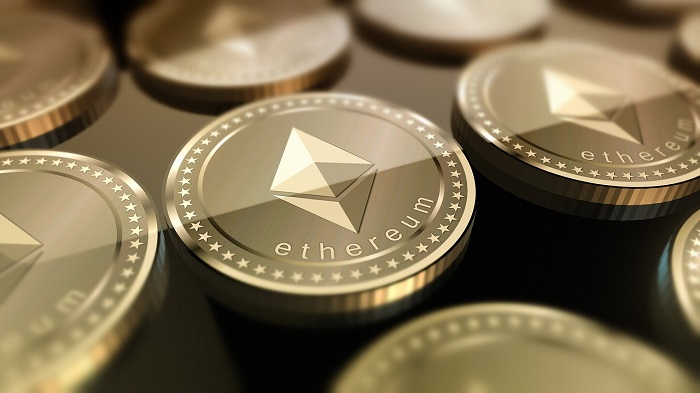There are over 5000 cryptocurrencies in the market, with Bitcoin being the most popular and widely used globally. But with such a massive number of other options available, It can get a little confusing as to which one to go with. In this guide, we are going to discuss the best 7 alternatives to Bitcoin.

7 Best Alternatives To Bitcoin You Should Know About
1. Litecoin
Litecoin was launched in 2011 and is considered one of the strongest alternatives to Bitcoin.
It follows an open-source global payment network and is a source of “code fork” Bitcoin blockchain.” Litecoin has a script in its proof of work algorithm, decoded with consumer-grade CPUs’ help.
One of the significant differences between Litecoin and Bitcoin is the time they take in processing blocks. Litecoin takes 2.5 minutes to confirm a transaction, whereas Bitcoin takes 10 minutes.
Apart from this significant difference, other differences include the production of coins and the algorithms they use. Litecoin can produce up to 84 million coins, whereas Bitcoin’s limit is only 21 million. Also, Bitcoin uses the SHA-256 algorithm, which is different from Litecoin cryptographic algorithms as it uses Scrypt.
Read Also:
2. Ripple
Ripple is another largest cryptocurrency after Bitcoin and Ethereum. It is a cryptocurrency and a “digital payment network” that helps in the exchange of money. Like Bitcoin, it is also a decentralized platform, which enables peer-to-peer exchange of money in various forms like Yen, Litecoin, USD, or even Bitcoin.
Ripple is more famous for its digital payment network than cryptocurrency. Ripple’s protocol for the settlement of payments is somewhat similar to the SWIFT system that the banks and financial people use.
Ripple does not use the mining process to confirm transactions. It uses a unique group of servers to carry out the process of transaction confirmation. As compared to other cryptocurrencies, Ripple is amongst those that use less energy and takes less time to confirm transactions. It also involves lower transaction costs as compared to Bitcoin.
Also, the payment protocol of Ripple is becoming more and more useful for the banks. It has gained popularity amongst the banks rather than the individuals.
3. Dash
Dash falls under the category of cryptocurrencies that all individuals and businesses use in their everyday life. It was introduced as Darkcoin in the market in 2014. However, it got changed to Dash, which remarks digital cash.
Dash is one of the world’s most valuable cryptocurrencies. It also claims to have many competitors in the market as they lack being a medium for everyday transactions. According to some sources, Bitcoin, and Litecoin, both are working towards including everyday transactions.
Besides being an open-source cryptocurrency, it is also a decentralized autonomous organization (DAO). Master nodes run Dash making the transactions almost impossible to trace. Dash and Bitcoin use different algorithms to mine the coins. Bitcoin uses Proof of Work, whereas Dash uses X11 algorithms to mine the coins.
Another advantage of Dash is, you can use your current CPU or GPU for mining. And when it comes to transactions, as compared to Bitcoin, Dash is cheaper and faster.
4. Ethereum

After Bitcoin, Ethereum holds the second-best position in the market in popularity as well as value. The cryptographic currency of this platform is Ether. The platform does not only helps in assisting but also in running decentralized applications (DApps).
Ethereum is more than just a platform. It is an open-source operating system that runs on a blockchain and helps SmartContracts build and publish DApps without any scam or third-party interference.
One of the most significant differences between Bitcoin and Ether includes their smart contracts. However, Ethereum uses blockchain just as similar to Bitcoin.
5. Bitcoin Cash
Bitcoin cash was particularly introduced to improve Bitcoin scalability. It made peer-to-peer electronic cash transactions possible by increasing each block’s size from 1MB to 8 MBs. As a result of which multiple transactions could get verified at one time. In 2018, Bitcoin cash further increased the block size to 32MBs.
Bitcoin miners and developers had initiated Bitcoin Cash. However, in terms of processing transactions, Bitcoin cash left Bitcoin behind as the increase in block size from 1 MB to 8 MBs accelerated the process.
The similarity between Bitcoin and Bitcoin Cash lies in the algorithms they use to mine each block. Both the cryptocurrencies use “Proof-of-Work” algorithms, a “partial inversion of a hash function.”
Along with the above-mentioned features, it also reduces the transaction fees and competes with other bigger companies like PayPal and Visa.
6. Zcash
With more people entering into the world of cryptocurrencies, the risk of an individual’s Privacy has also increased. That’s where Zcash comes in. In comparison to Bitcoin and other cryptocurrencies, it provides absolute Privacy of blockchain transactions to its users.
Zcash is a source of Bitcoin fork and includes its open-source code similar to Bitcoin. It is also a decentralized cryptocurrency that allows transactions without compromising the user’s identity.
Another feature that adds to its popularity amongst businesses and corporations involves Zero knowledge of proof to confirm transactions.
7. Monero
2014 saw one of the most secure, private, and untraceable Cryptocurrencies in the market, Monero. Since its arrival, the prime focus of Monero has been the Privacy of its users.
The privacy features of Monero are better than that of Bitcoin. One of the reasons for its popularity lies in its anonymization characteristic. Unlike the bitcoin blockchain, it does not record the real addresses of the sender and the recipient.
It is fungible and decentralized. It uses a complex public ledger, making it difficult for the observer to understand and track transactions.
Monero uses a consumer-grade CPU or GPU for mining. It is continuously working towards making the transactions anonymous and called highly decentralized without any ICO or IEO link.
8. Grin

Grin entered the cryptocurrency market with its focus on the Privacy of its users in 2019. It is native to the MimbleWimble blockchain that is – allowing transactions without any restrictions or censorship.
It is not a derivative of a hard fork of any cryptocurrency. It has its codebase along with block rewards as 60 grin per block. Grin is a highly scalable cryptocurrency that has features that other famous digital currencies failed to provide.
Users can easily use it for daily transactions, just like cash. It also provides an unlimited overall supply of coins. It also keeps the transactions confidential, which helps enable the blockchain to hide the Grin exchanges and the owner’s identity.
Read Also:
Conclusion
Bitcoin holds its position in the market as it was the first Cryptocurrency. However, it lacks somewhere in providing some of the features like Privacy, speedy transactions, etc.
Each Cryptocurrency comes with a set of advantages and disadvantages. We have tried to include all the necessary information a person would require before investing in any cryptocurrency.
Before choosing any cryptocurrency, go through all the 7 best Bitcoin alternatives mentioned in this article. Then make a choice based on what you desire or what you are looking for. Keep trading!